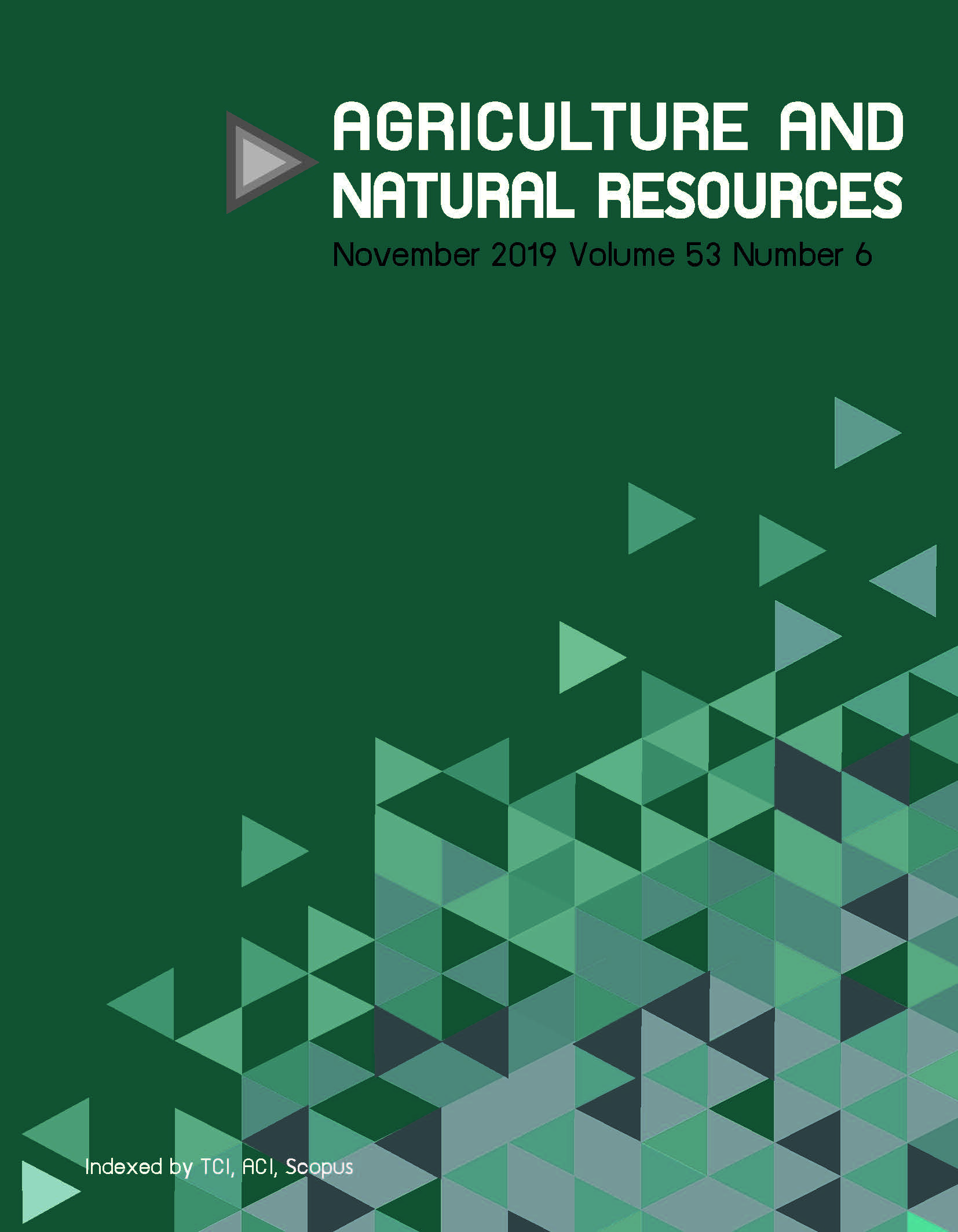Selenium enrichment in sprouts of sunflower (Helianthus annuus)
Keywords:
Selenate, Selenite, Selenium-enriched plant, SunflowerAbstract
The effects of the source and level of selenium supplementation were investigated on the yield and selenium concentration in sprouts of sunflower (Helianthus annuus). Samples (125 g) of sunflower seeds were cultivated in plastic trays (30 cm × 60 cm × 4 cm) filled with soil medium. The trays were randomly divided into nine groups with four replicates based on a 2 × 4 + 1 augmented factorial experiment in a completely randomized design. Selenium solutions were prepared from sodium selenate and sodium selenite at five different concentrations: 0 mg/L (control), 0.5 mg/L, 1.0 mg/L, 2.0 mg/L and 3.0 mg/L and applied to the sunflower sprouts daily. The sprouts were harvested at day 7 of cultivation. The results showed that the yield of sunflower sprouts watered with selenate solution was higher (p < 0.05) than that of sunflower sprouts watered with selenite solution. The selenium concentration in sunflower sprouts increased (p < 0.05) with increasing levels of selenium supplementation. The concentration of selenium in its selenate form increased (p < 0.05) more in sunflower sprouts compared to selenium in its selenite form. The selenium concentration in sprouts supplemented with selenate solution containing 2.0 mg Se/L was 903.49 mg/kg. The findings demonstrated that selenate was superior to selenite with regard to the yield and selenium concentration in sunflower sprouts.
Downloads
Published
How to Cite
Issue
Section
License
Copyright (c) 2019 Kasetsart University

This work is licensed under a Creative Commons Attribution-NonCommercial-NoDerivatives 4.0 International License.
online 2452-316X print 2468-1458/Copyright © 2022. This is an open access article under the CC BY-NC-ND license (http://creativecommons.org/licenses/by-nc-nd/4.0/),
production and hosting by Kasetsart University of Research and Development Institute on behalf of Kasetsart University.







